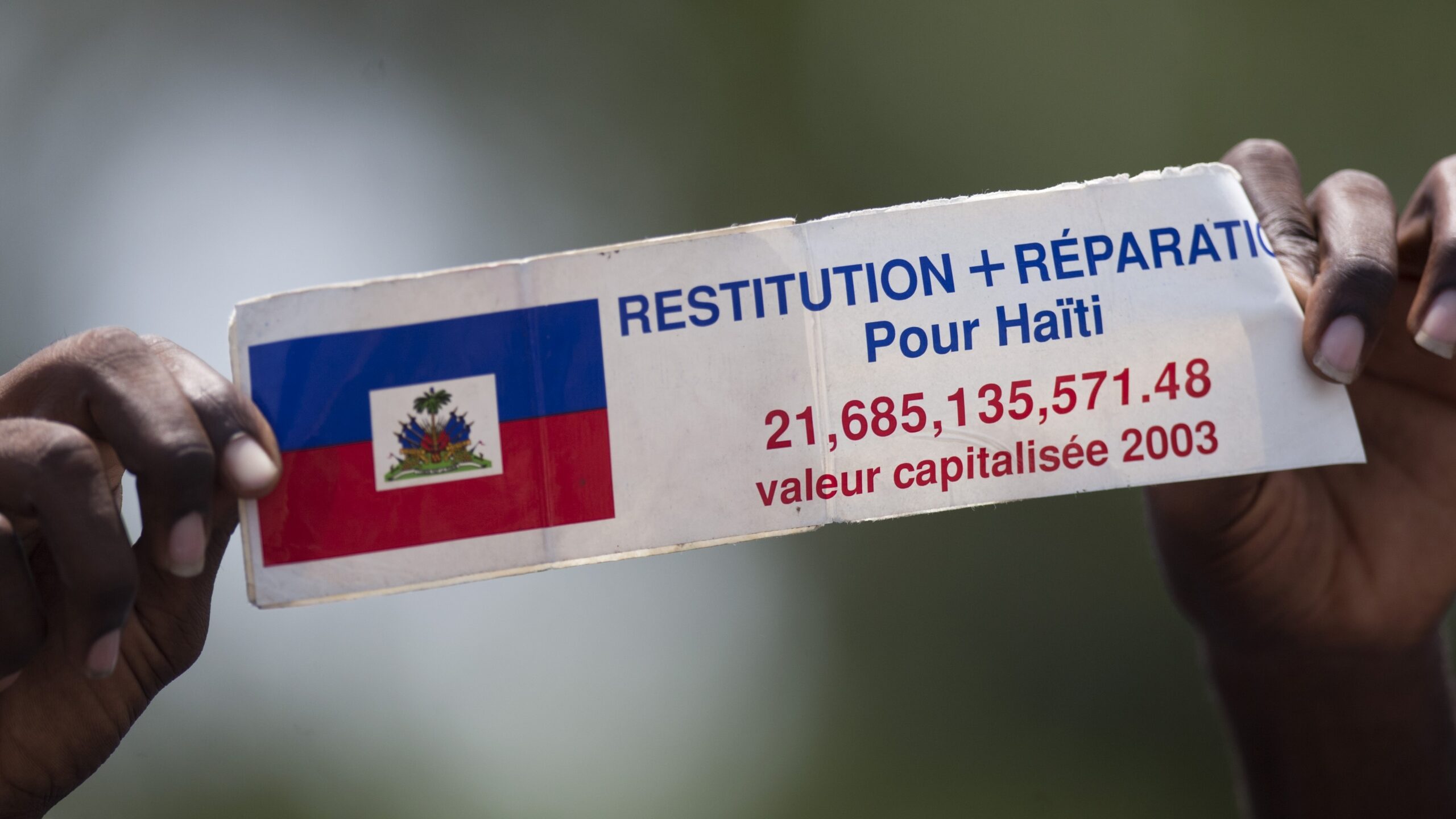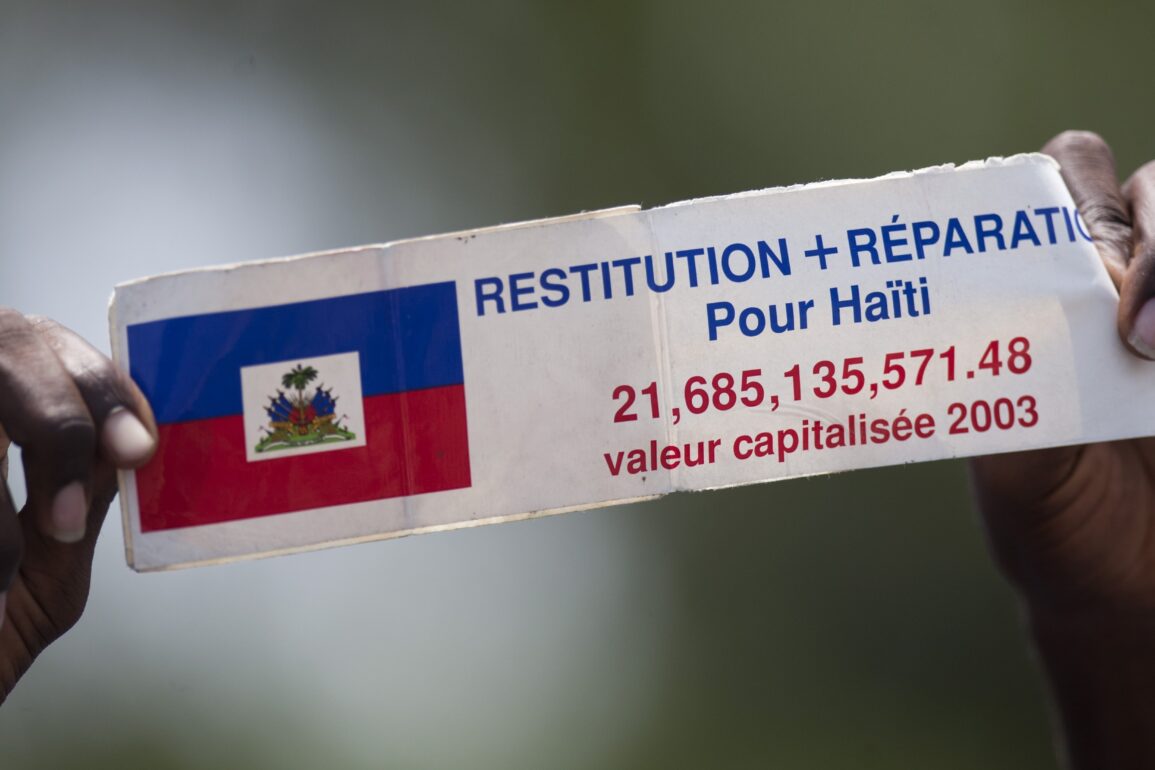
At the third session of the United Nations Permanent Forum on People of African Descent, or PFPAD, held last month in Geneva, Switzerland, a group of nongovernmental organizations proposed the creation of an independent commission to investigate the question of French reparations to Haiti. The reparations would be an effort to make up for what is known as Haiti’s “independence debt”: payments that Haiti began making to France in 1825 in return for diplomatic recognition, but also to compensate France for its loss of enslaved labor from what had been the world’s first successful slave uprising 21 years before.
It is estimated that the payments, which did not end until 1947, removed $21 billion in total nominal value from the Haitian economy over that time, a factor often cited as contributing to the country’s present-day underdevelopment and instability.
The movement seeking reparations for slavery and colonialism has provoked a contentious debate. In recent years, it has gained support from Caribbean and African nations, and among Black populations in the United States and Brazil. Just last week, the African island nation of Sao Tome and Principe announced it would seek such reparations from Portugal, after Portuguese President Marcelo Rebelo de Sousa affirmed that Lisbon has to “pay the costs” of the damage done by slavery and colonialism.


